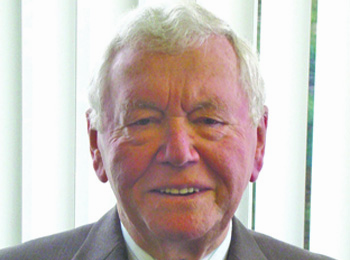Anat Hoffman is arguably Israel’s best known and most effective social activist. What for her admirers is her claim to fame is for her detractors proof of her notoriety: her leadership of the Women of the Wall campaign that demands the same rights for women as for men to pray and read Torah there. The movement has galvanized women from across the religious spectrum and compelled the government of Israel to seek ways to accommodate their liturgical demands.
Hoffman is also executive director of the Israel Reform movement’s Religious Action Center, a potent advocacy organization on behalf of religious pluralism and equal treatment of all sections of society. It’s a staunch champion of the rights of individuals, Arabs no less than Jews, migrants no less than citizens.
Last month, Hoffman was honoured by the Women of Reform Judaism (WRJ) at its convention in San Diego, Calif., with the prestigious Jane Evans Award. The WRJ has its roots in the United States and Canada, but of late, it has also created an outpost in Israel.
Reform Judaism has had a continuous and growing institutional presence in Israel since soon after the establishment of the state. Some of its pioneers emigrated there much earlier. But in recent decades, Hoffman and the many Reform rabbis, trained and ordained in Israel have helped bring Israel to Reform Judaism.
In her address at the award ceremony, she offered some practical advice about bringing Israel even closer. Her recommendations are relevant to all Jews in the Diaspora, irrespective of affiliation.
To start with, she urged her audience to be informed about every aspect of life in Israel, not only its security concerns. We should know about the many wonderful things that are happening there – spiritually, culturally and economically – far beyond what the media abroad normally report.
Hoffman’s words reminded me that Israelis regard themselves as being among the happiest people in the world.
Her approach was supported by others who attended the convention, held concurrently and partly jointly with the Biennial of the Union for Reform Judaism, the North American umbrella organization. The Forward quoted David Siegel, Israel’s consul general in Los Angeles, asking rhetorically, “How many people would be excited about Israel if the only conversations were about ‘crisis’?”
Akiva Tor, another Israeli official, suggested that “the weighty issues of strategic concern should not be the entrance point, but an outgrowth of a love and understanding of Israel.”
Hoffman urged Jews in the Diaspora to support causes in Israel that reflect their values. She obviously had in mind those who vote left-of-centre in their home countries yet ally themselves with right-wing, even reactionary, forces in Israel. She urged us to refuse to choose between our progressive values and our commitment to Israel. As she put it: “Let your frustrations motivate your actions.”
A good way of knowing Israel is at least by visiting it as often as possible. She asked the convention delegates to try to see more than the tourist guides are willing to show. “Less Roman ruins and more freedom rides,” she said.
The reported presence of many Israeli Reform leaders at both conventions was further evidence of how Israel has come into the centre of the movement. This was also reflected in the new links forged with the Shalom Hartman Institute in Jerusalem. Its founder, the late Rabbi David Hartman, had inspired and guided the current president of American Reform Judaism, Rabbi Rick Jacobs.
Like Rabbi Eric Yoffie, his predecessor in office, Rabbi Jacobs is a committed Zionist and determined to steer Reform Judaism in North America toward ever greater involvement with Israel, not only to support progressive forces there, but to be open to all facets of what Israel brings to every Jew in the Diaspora.
Rather than only stressing the inequalities that, alas, still exist also when it comes to religious pluralism, the Reform movement is involved with the wide range of challenges that contemporary Zionism in general and Israel in particular are facing.
Though frustrations understandably continue to evoke critical responses in some quarters, the leaders of Reform Judaism are determined not to allow the many barriers placed along its path to deter it from active and continued involvement with all aspects of Israeli life.
Bringing Israel to Reform Judaism, in addition to bringing Reform Judaism to Israel, has benefited both immeasurably.
